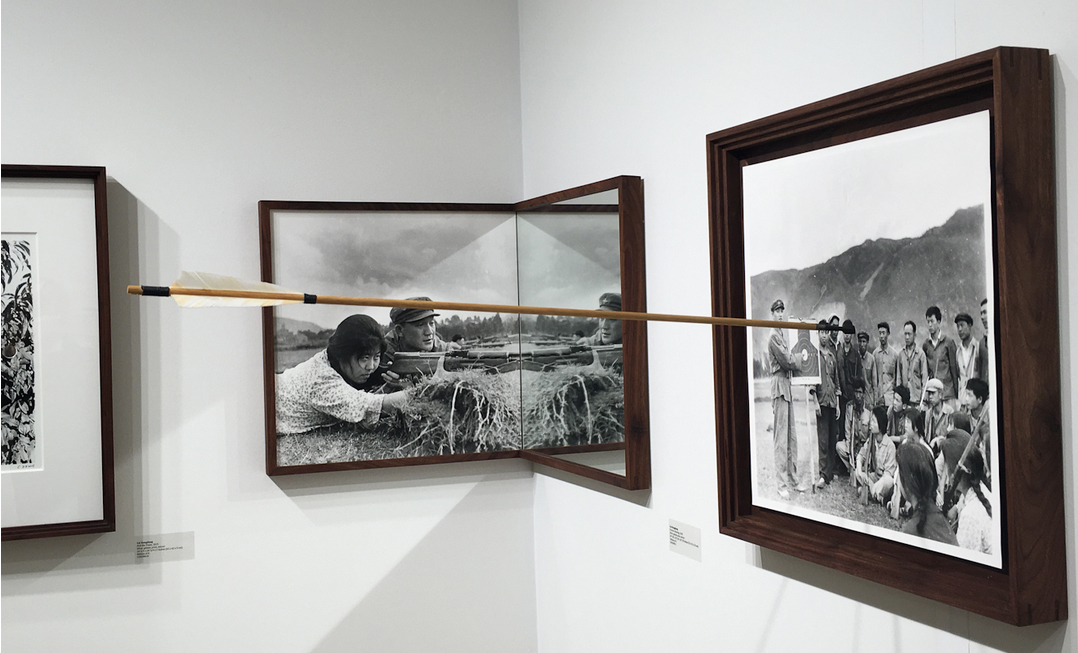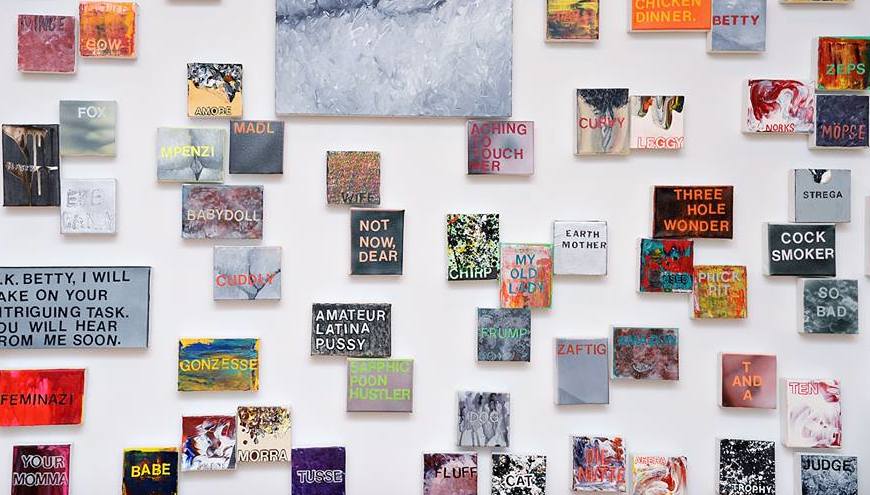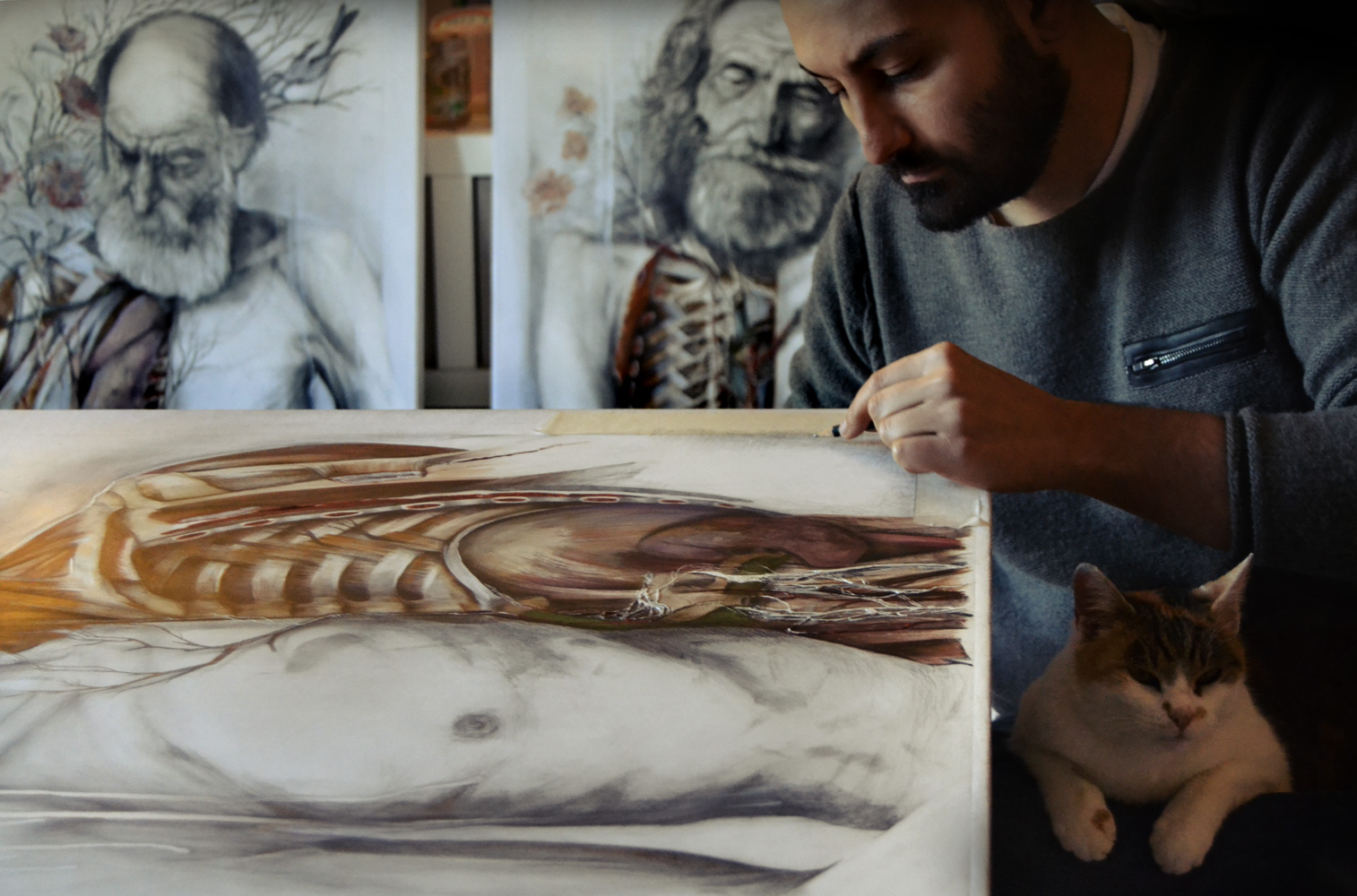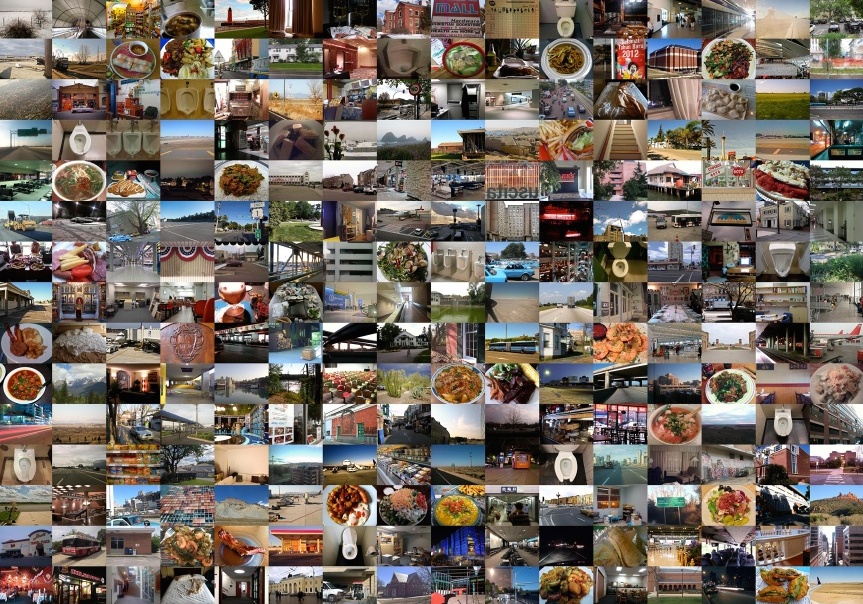
Hasan Elahi wants you and the FBI to know where he is at all times. For arts sake. As a response to having been interrogated as a terrorist suspect soon after the 9/11 attacks, the University of Maryland art professor has painstakingly documented his activity every day for over a decade. He has posted over 72,000 of these images on his site, and arranged these snapshots into the multicolor tableau, “Thousand Little Brothers,” which is currently displayed at the Open Society Foundations in New York.
In an act of what Elahi calls “aggressive compliance,” he reveals that the perceived threat is actually painfully mundane. Zoom in on the shrunken images of Thousand Little Brothers and you’ll find hastily snapped photos of rumpled bed sheets, rest stops, gas stations, toilets, and take out. Although Elahi is documenting his every move, the images do not reveal anything particularly personal that distinguish him from any other citizen. They are simply a series of data points.
“In an era in which everything is archived and tracked, the best way to maintain privacy may be to give it up,” Elahi wrote for the New York Times.
If we voluntarily offer up our private information, Elahi argues, we deny the function of the FBI agents and companies who synthesize this data. Thus, the currency of personal data is devalued, and the institution of surveillance itself is weakened. “I’ve always been fascinated with Magellan and the concept of circumnavigation: going far enough in one direction to end up in the other,” he said to Hyperallergic.
Elahi’s work has also been read as an amplification of the current social media trend, ie, Instagraming that elaborate sushi you’re about to devour. He strips any artistry from the process of documentation, and his congested canvas mimics a newsfeed in which we are inundated with humdrum snippets of people’s lives.
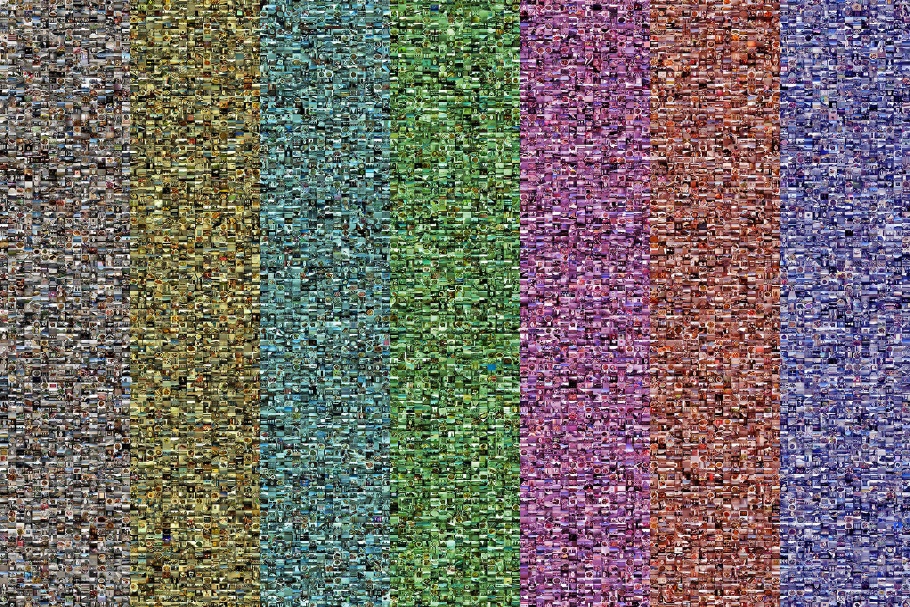
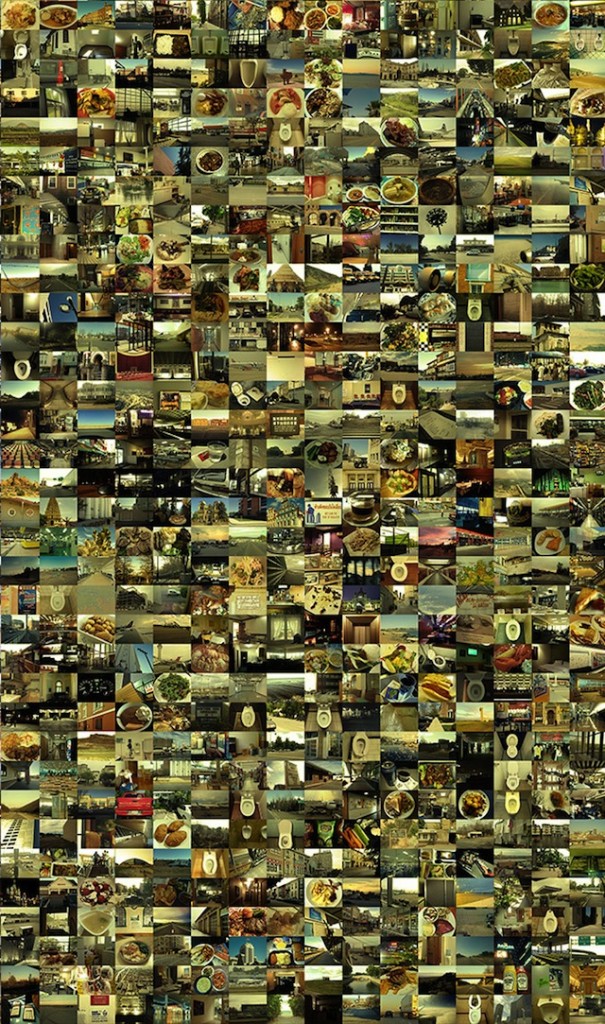
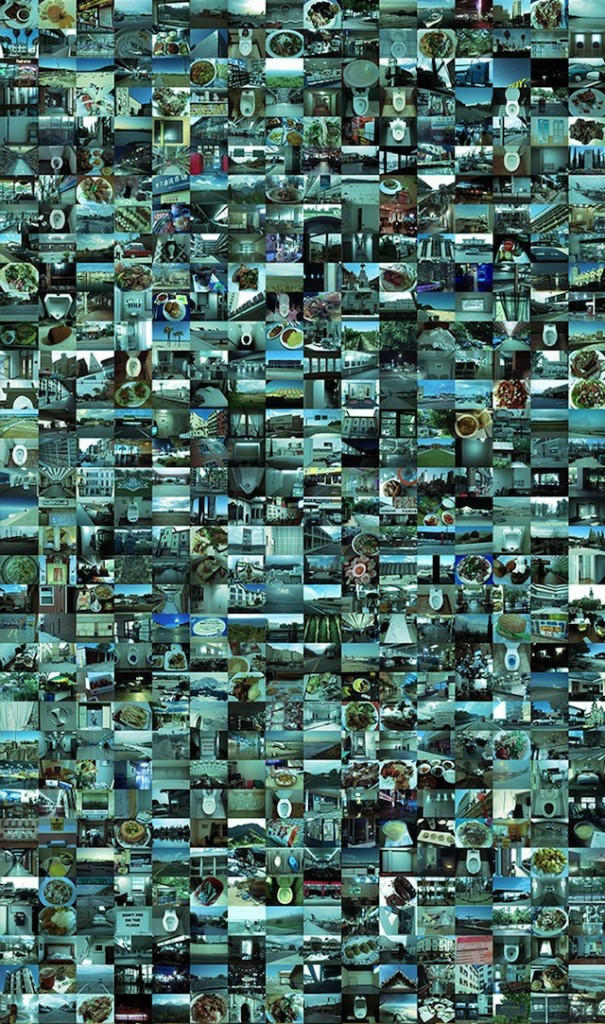
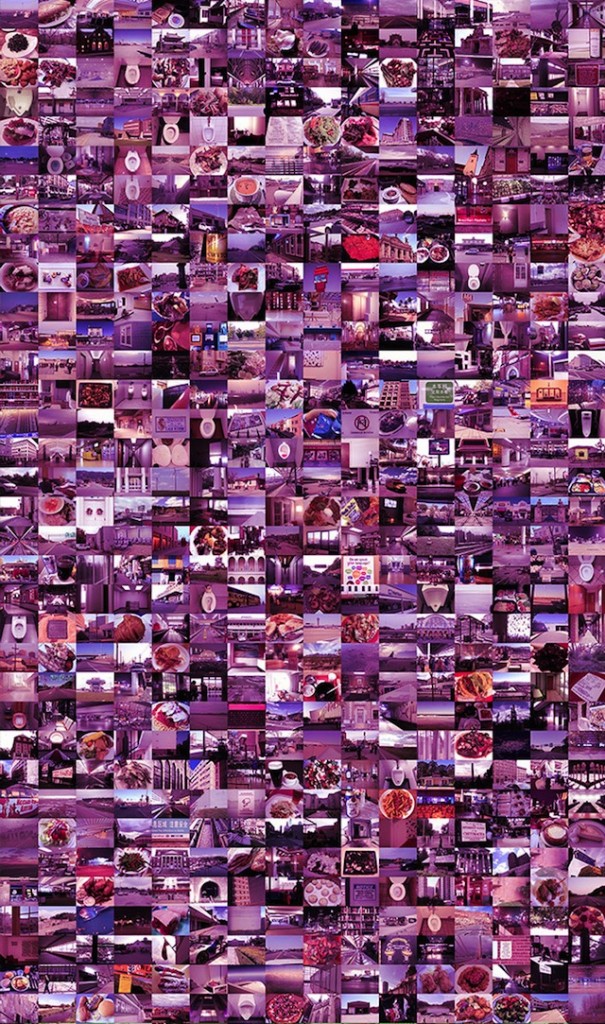
You can see his ongoing online installation (along with his current coordinates and what he ate for lunch) at his website or check out the current exhibition WATCHING YOU, WATCHING ME at the Open Society Foundations until September 11th.


